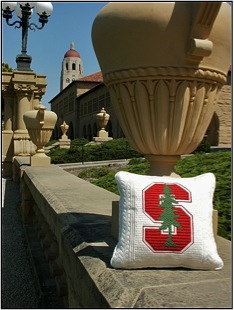Stanford Study: More Sleep Improves Hoops Performance
Posted by rtmsf on July 6th, 2011“Get a good night’s rest.” We’ve all heard it from the time we were little kids — whether it was our parents extolling us before a big trip, our teachers warning us before a big exam, or a coach encouraging us before a big game. And while conventional wisdom in every facet of our lives suggests that sleep is a necessary building block toward high achievement, people rarely specify how much rest is enough. That is, until Stanford Medical School, using Johnny Dawkins‘ men’s basketball team as guinea pigs, decided to study that exact question. For the past two basketball seasons, Cheri Mah, a researcher focusing on the science of snoozing, tracked the sleeping habits of eleven Stanford Cardinal players, putting them through the following protocol:
The researchers asked the players to maintain their normal nighttime schedule (sleeping for six to nine hours) for two to four weeks and then aim to sleep 10 hours each night for the next five to seven weeks. During the study period, players abstained from drinking coffee and alcohol, and they were asked to take daytime naps when travel prohibited them from reaching the 10 hours of nighttime sleep.
The results, at least in a practice setting, will undoubtedly have coaches from Orono to San Diego and everywhere in between seeking to move lights-out to an earlier time and re-think the utility of those punitive 6 AM practices some choose to employ. Mah’s team found that the players ran three full-court sprints (“suicides”) 4.5% faster with more sleep than they did at baseline, and their shooting percentages from both the foul line and the three-point arc improved by nine percent. Keep in mind that the improvements were noted in team practices rather than game settings, but players generally self-reported that they felt less fatigued and their performances at both practices and games improved as a result.
While it seems elementary that more sleep would improve performance — after all, isn’t that the point of the adage above? — most people in our workaholic society seem to believe that anything more than eight hours a night is a progressive waste of valuable time. This Stanford study may suggest that, at least with elite athletes, the traditional six to eight hours of rest each night is not sufficient. For truly optimal performance, more sleep approaching ten hours nightly over a period of weeks and months is, according to Mah’s findings, a “critical” component toward maximizing one’s athletics ability.
The researchers note that the generalizability of the study is limited due to a small sample size and the fact that it was difficult to quantify player performance in a game setting. Another possible confounding factor is that the players simply improved their speed and shooting over the course of a long season as a result of practice and repetition more than anything else. But at the end of the day, what the Stanford researchers found makes a fair amount of sense. Everyone knows how great it feels to get a fantastic night’s sleep, and the recovery of both mind and body during the resting hours is still something not fully understood by scientists. It’s entirely plausible that adding a couple more hours of nightly sleep to an athlete’s protocol could help him reach his full potential, although all the adaptive science in the world wouldn’t have made that terrible Cardinal team any better the last two seasons.











































